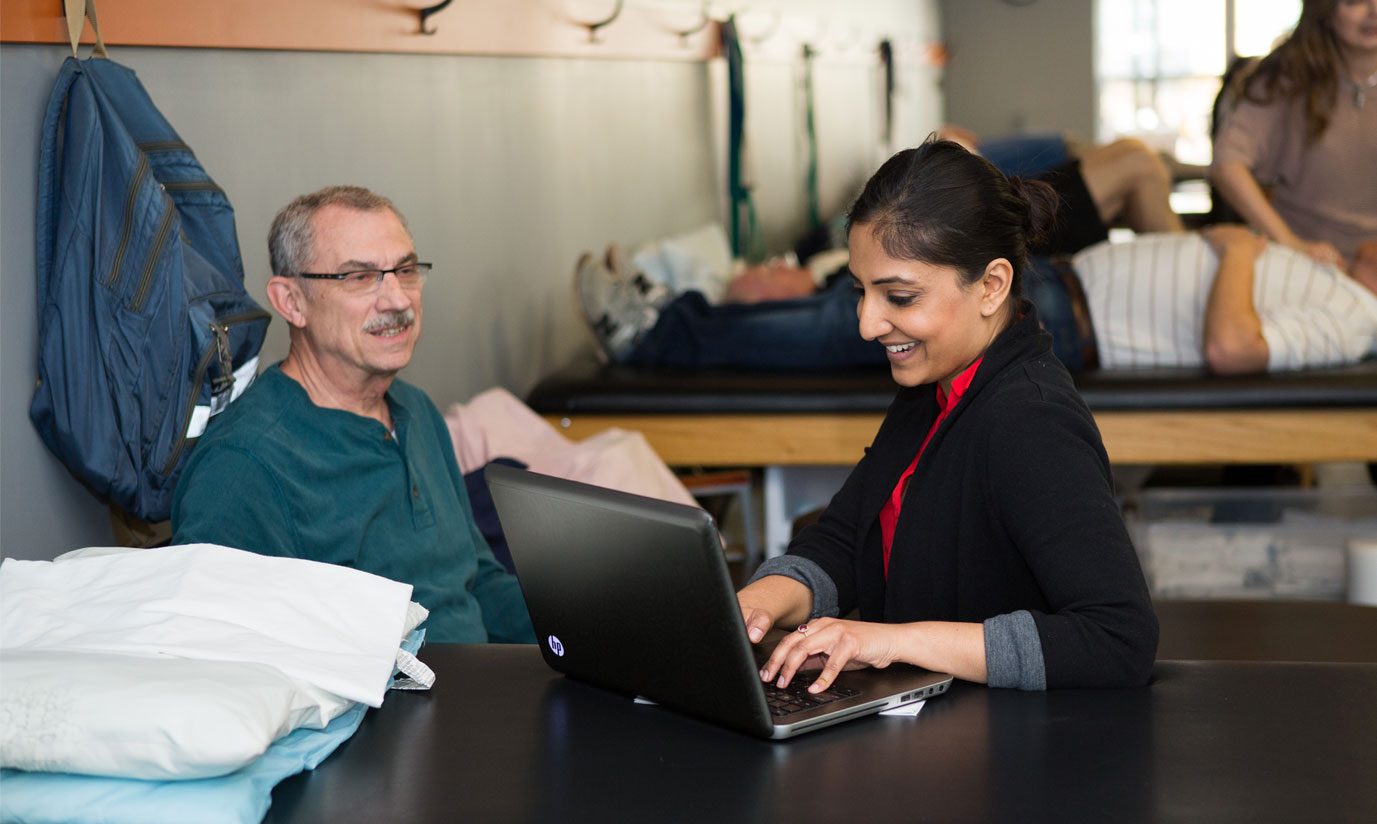
GERIATRICS - Breast Cancer Related Lymphedema
-
Register
- Non-Member - $200
- PT Member - $120
- PTA Member - $120
- Student - $120
- Post-Professional Student - $120
- APTA Staff - Free!
- *Further discounts may apply once you log in.
Lymphedema impacts nearly 40% of women after breast cancer treatment. The condition involves limb and upper quadrant swelling which is naturally progressive over time if left untreated. The lymphatic system is unique in structure and functions from the circulatory system; the presentation of lymphedema is different than other forms of systemic swelling. Due to those nuances, it is necessary to recognize that swelling related to lymphatic system failure requires specialized knowledge and skills in clinical management.
Editor: Barbara Billek-Sawhney, PT, EdD, DPT, GCS
Learning Objectives:
- develop an understanding of what lymphedema is and how this clinical condition develops related to breast cancer treatment.
- identify the anatomical components and structure of the lymphatic system as it relates to the breast and upper quadrant.
- identify risk factors for the development of lymphedema including treatment interventions and lifestyle activities.
- deferentially diagnose breast cancer related lymphedema from other forms of systemic swelling conditions.
- describe the signs and symptoms associated with adverse events in lymphedema including infections, blood clots, recurrent cancer, and swelling exacerbations.
- synthesize knowledge to appropriately identify the hallmark skin and tissue changes associated with the varying stages of condition severity.
- explain best practices for treatment interventions including the components of complete decongestive therapy and additional adjunctive therapies.
- describe evidence based clinical measurement tools and patient-reported outcomes measures and recommend standardized use of those tools to support a clinical management plan.
- identify and differentiate the precautions and contraindications for lymphedema management.
- rationalize emerging evidence base for risk reduction and describe how to implement prospective models of care that promote early identification and intervention.
Bryan A. Spinelli
PT, PhD
Dr. Spinelli is a physical therapist and Assistant Professor at Thomas Jefferson University with expertise in oncology rehabilitation. He graduated with a Bachelor of Science in Physical Therapy and a Master of Science from Northeastern University. He received his doctorate of Philosophy at Drexel University.
Bryan is an American Physical Therapy Association Board-Certified Orthopaedic Clinical Specialist and Lymphology Association of North America Certified Lymphedema Therapist. He has experience assisting persons diagnosed with cancer manage neuro-musculoskeletal disorders, lymphedema, fatigue, weakness, deconditioning, and balance deficits.
Nicole L. Stout
DPT, CLT-LANA, FAPTA
Dr. Stout is a renowned health care researcher, consultant,educator, and advocate. She is the chief executive officer of 3e Services, an information technology consulting firm where she serves as a medical affairs consultant for biotech and health care wearable firms. Additionally, she supports the Office of Strategic Research at the National Institutes of Health, Rehabilitation Medicine Department leading the Cancer Rehabilitation Initiative.
Dr. Stout is an internationally recognized expert and leader in cancer rehabilitation and lymphedema. She has given over 200 lectures nationally and internationally, authored and co-authored over 50 peer review and invited publications, several book chapters, and is the co author of the book 100 Questions and Answers about Lymphedema. Her research publications have been foundational in developing the Prospective Surveillance Model for breast cancer rehabilitation and supporting national initiatives in cancer rehabilitation.
Course Instructions
- Click on the Contents tab to watch the course recording.
- Click the Take Quiz button to complete the assessment. Learners will have 3 attempts to pass and must answer at least 70% of questions correctly.
- Click the View/Print Your Certificate button under the Certificate listing. You can view/print your certificate at any time by visiting the APTA Learning Center and clicking the CEU Certificate/Transcript link on the left-hand side of the page.
Need Assistance?
For assistance logging in, accessing activities, claiming credit, or for other questions or concerns, please e-mail learningcenter@apta.org.



